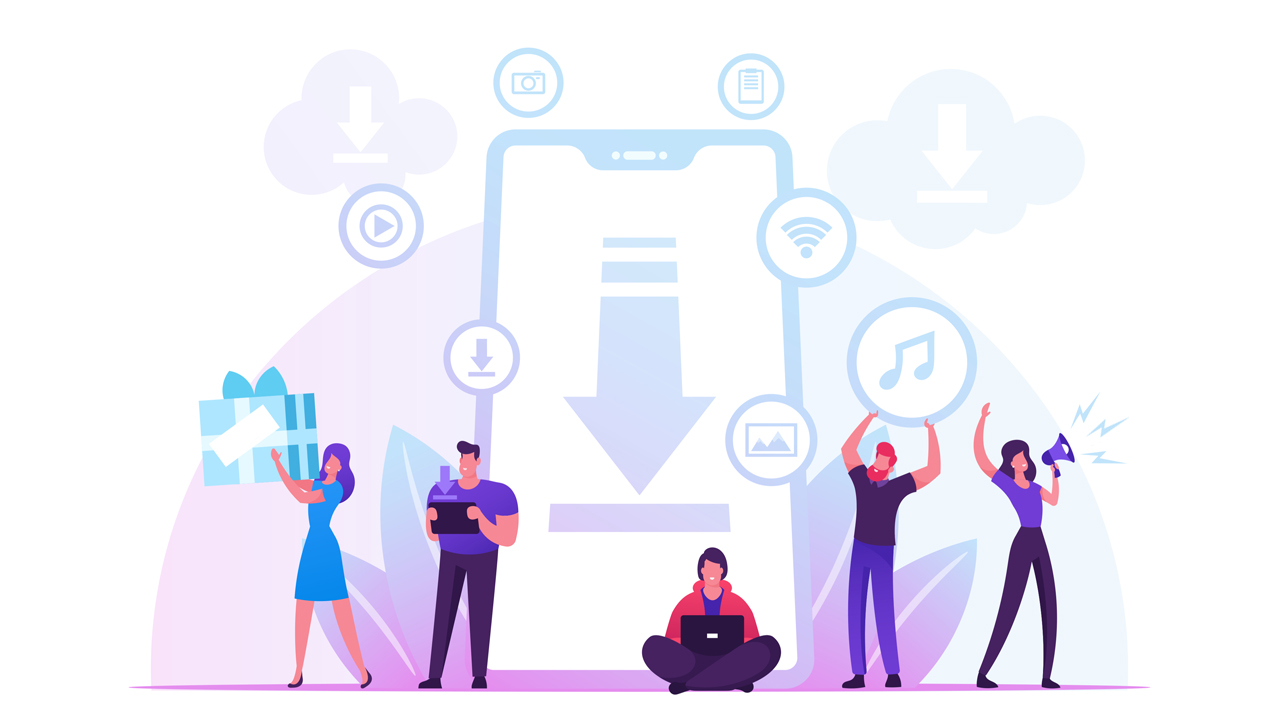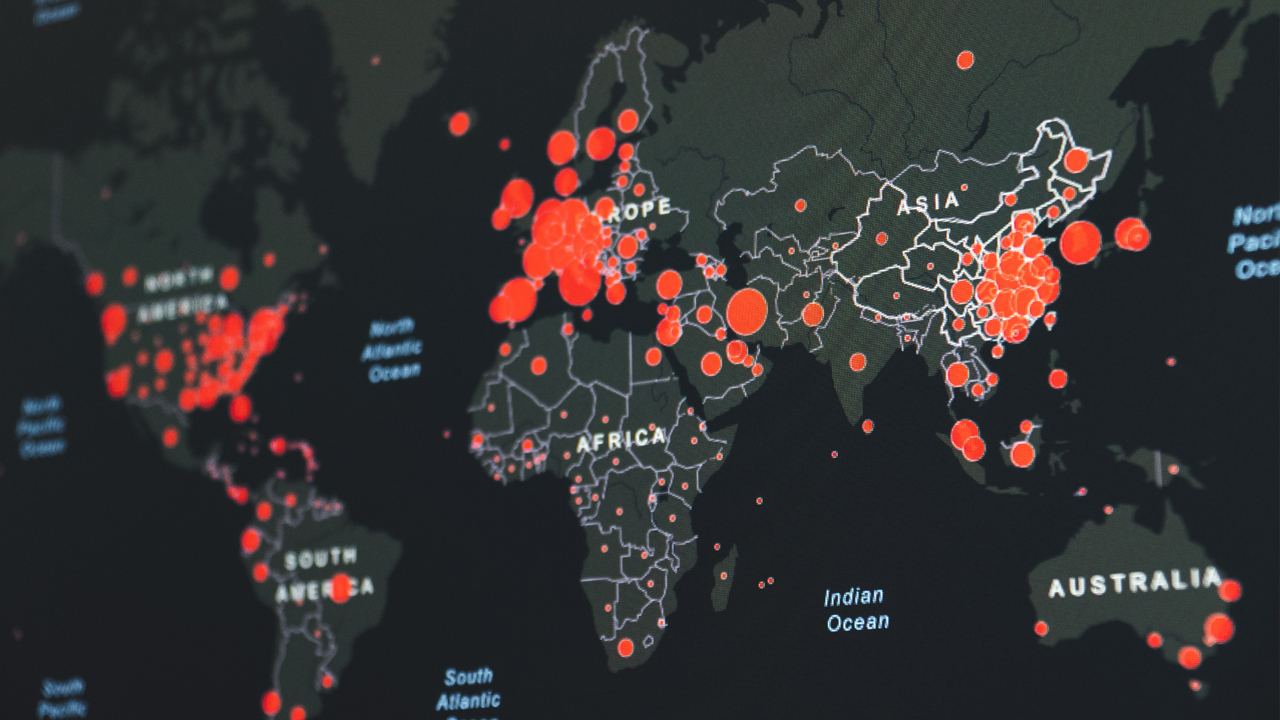This is why everybody else uses a VPN when torrenting
Everyone says you need one – but what's the reason?

Here at Tom’s Guide our expert editors are committed to bringing you the best news, reviews and guides to help you stay informed and ahead of the curve!
You are now subscribed
Your newsletter sign-up was successful
Want to add more newsletters?

Daily (Mon-Sun)
Tom's Guide Daily
Sign up to get the latest updates on all of your favorite content! From cutting-edge tech news and the hottest streaming buzz to unbeatable deals on the best products and in-depth reviews, we’ve got you covered.

Weekly on Thursday
Tom's AI Guide
Be AI savvy with your weekly newsletter summing up all the biggest AI news you need to know. Plus, analysis from our AI editor and tips on how to use the latest AI tools!

Weekly on Friday
Tom's iGuide
Unlock the vast world of Apple news straight to your inbox. With coverage on everything from exciting product launches to essential software updates, this is your go-to source for the latest updates on all the best Apple content.

Weekly on Monday
Tom's Streaming Guide
Our weekly newsletter is expertly crafted to immerse you in the world of streaming. Stay updated on the latest releases and our top recommendations across your favorite streaming platforms.
Join the club
Get full access to premium articles, exclusive features and a growing list of member rewards.
If you’ve ever visited a torrenting website, you will no doubt have seen constant reminders to use a torrenting VPN – and no matter what you’re torrenting, it’s certainly advice that we can understand.
But why do you need a VPN when sharing P2P, and how does it actually keep you safer online? Well, here we’ll be explaining exactly how torrenting works, what risks you face, and what the best VPNs do to help.
Of course, we do not condone the use of torrents to download unlicensed or illegal content, and our advice is only intended to assist those legitimately using torrents to download legal content.
Tom's Guide is collaborating with TechRadar to look at how our readers use VPNs with different devices so we can improve our content and offer better advice. This survey won't take more than 60 seconds of your time, and entrants from the UK and US will have the chance to enter a draw for a £100 Amazon gift card (or equivalent in USD). Thank you for taking part.
What is torrenting?
To understand why you need a VPN when you're torrenting, first you need to understand exactly how torrenting works - especially if you've never done it before.
Before you start downloading, you’ll need a torrent client. These allow you to connect to the network and download the files you need. Every torrent has a torrent file which indicates to the client what to download from the network, but these are increasingly being replaced by 'magnet links', which don't require you to download anything before beginning the torrent download.
Peer-to-peer (P2P) sharing is a method of file sharing that's decentralized, So, rather than a file being downloaded from a single source, it’s downloaded from a number of individuals around the world over the BitTorrent network. As long as a single user is sharing (known as ‘seeding’) the file at any one time it can be downloaded, and, usually, the more people seeding means a faster download.
This is useful since it takes stress away from a single server – if a particular file is very popular, downloads could become very slow from a single server, and if that server were to go down, the file would be unavailable. Larger files are also easier to download, and are generally quicker to complete over P2P than single-source downloading.
Once you’ve finished downloading a file, you’ve got the choice of staying connected to the network to become a seeder yourself. This means you’re part of the network from which other people can download the file.
What risks do you face when torrenting?
Beyond potentially downloading illegal content, one of the biggest issues with torrenting is the fact that all your activity can be openly traced back to your IP address.
"Many users don't realise how public their P2P activities really are," says cybersecurity expert Mike Williams. ‘It's not just top-secret movie studio groups who monitor this stuff – sites like I Know What You Download allow anyone to look at an IP address and maybe see what it's downloaded recently.
"Anyone who knows your IP – friends, family, work colleagues, whoever – can check the site and get a file list. It's like having your browsing history permanently open for public viewing: you don't have to be doing anything illegal to find that just a little bit worrying."
And that’s true – while some users may well fear their illegal download history being on show, no one enjoys their private life being out in the open. The only way to avoid this, no matter what you’ve got queued up to download, is to change your IP address with a VPN.

How does a VPN protect you when torrenting?
There are two main reasons why you should be using a VPN to torrent safely. Firstly, when using your regular, unencrypted internet connection, your ISP can see exactly what you’re using it for. Unsurprisingly, ISPs don’t take kindly to those using torrents (regardless of what you’re downloading), and have been known to throttle frequent users.
ISPs are also the bodies that report users downloading pirated content. If you accidentally download something you shouldn’t have, your ISP can see that and may report it – culminating in you receiving a DMCA violation notice.
By using a VPN, all your traffic will be encrypted, meaning your ISP won’t be able to see what you’re doing – whether you’re torrenting all day or simply streaming Netflix shows.
Secondly, when connected to a VPN you’ll also be using a different IP address, meaning that any torrent activity will only be associated with an IP address linked to a VPN, not your own home. That means that anyone investigating your personal IP with a tool like the one we linked to above won’t find any history of it. And, as long as your VPN is verified as zero-logging, your activity won’t be able to be linked to the temporary IP, either.
What should you look for in a torrenting VPN?
Privacy should be your primary concern, so features like strong encryption and a verified no-logging policy are essential. Being based in a country with beneficial data protection and retention laws is also a must. If a VPN is based in a country like the US or UK, it may be required by law to collect data on its users (making it not no-logging), and can be compelled to hand over any data it has collected if the authorities demand it.
Beyond privacy, you’ll obviously want a seriously fast VPN to make the most of the high download speeds offered by P2P. VPNs that have introduced WireGuard or similar modern protocols like Lightway are far outstripping those still relying on OpenVPN, so keep an eye out for that.
Full P2P support on all servers is a no-brainer, and some VPNs offer expert features like port forwarding that, in the right hands, can be beneficial. However, for the majority of users, a simple plug-and-play experience will more than suffice.
Finally, it’s worth making sure your chosen service has a good support team backing you up. If something goes wrong, 24/7 live chat is handy, and the best providers can get you up and running again in minutes.
Which VPN should you use when torrenting?
ExpressVPN is the best torrenting VPN on the market.
ExpressVPN simply ticks all the boxes. With an audited zero-logging policy, full P2P support on every one of its 3,000+ servers, and excellent connection speeds, it's the perfect torrenting tool. Plus, you can now claim three months FREE on a 12-month plan, and you'll get a 30-day money-back guarantee so you can trial the service risk-free.

Get instant access to breaking news, the hottest reviews, great deals and helpful tips.

Mo has been rigorously testing, reviewing, and analyzing VPN services at Tom’s Guide for more than five years. He heads up the three-person Tom's Guide VPN team, and is passionate about accessibility: he believes that online privacy should be an option that’s available to everyone. NordVPN and ExpressVPN are the products he uses most on a daily basis, but he experiments weekly with all the top services, evaluating their privacy features, connection speeds across various protocols, and server reliability – among other things – so that he can make confident VPN recommendations that are backed by data. To see his latest advice, head over to Tom’s Guide’s best VPN and best free VPN guides.
 Club Benefits
Club Benefits











